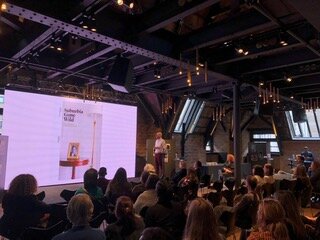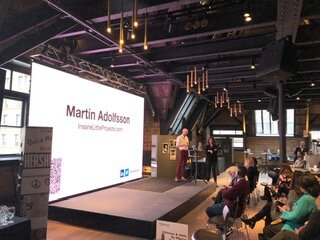Q&A: Andreas Gehrke
How would you describe your work?
muted not loud
Is there anything you want to shoot more of?
Everything
Looking back 10 years, what has changed and what hasn’t changed?
I think the game is the same but it seems to be way easier to start a career, mainly because of the digital revolution in photography and in media. Also, there are a lot more people in the digital world who deal with photography (or images) who have no idea about copyrights or the value of an image.
What’s the one thing that has surprised you the most in the last decade?
The photography medium is more important and popular than ever but the single image itself is deteriorating in value (and the more we all use Instagram).
Going back to 2009, is there anything in terms of your career you’d have done differently?
Good question … publishing fewer books and do more art shows instead? I don’t know ...
Has your approach to your work/profession changed - if yes, how?
Maybe when I became a father my approach to my work changed unavoidably too, simply because of time management.
Has your approach to your non-professional life changed - if yes, how?
My life definitively changed when my daughter was born ...
What do you know now, that you didn’t at the time you took the last portrait?
I’m afraid I haven’t learned much since then. Haha!
Has your relationship to photography changed since 2009, if yes, how?
Surprisingly I’m still fascinated simply by a good photo. Doesn’t matter if it’s my own or from a colleague.
Bio:
I was born in 1975 in East Berlin. In 1988, at age 12, I joined a photography club in my neighborhood. The darkroom became my sanctuary during my high-school years when the Wall fell and my hometown suddenly became a different city. Berlin in the mid-1990s was a wasteland in many ways, including the job market, so I moved to Hamburg and became an assistant to a photographer working in advertising, fashion, and portraiture. Aged 24, I began working primarily for magazines taking portraits, and architecture, and landscape photography.
Parallel to this commissioned work, I constantly worked on my own personal projects. I photographed places whose stories are characterized by deprivation, disorientation, absence, or indeterminacy: empty spaces, wastelands, and edgelands and regions. I enjoy exhibiting my work, but I have always retained a special affection for the photography book – in my eyes, the perfect medium. In 2013, I founded my own publishing house, Drittel Books, to produce my future monographs independently and to build a platform for my artist friends’ work.
While I have taken maybe over 100 portrait commissions for magazines during my career, my personal work features few humans. This is based upon a sense that the power of the environment in which we live – from the world’s most populous cities to its most desolate landscapes – is to reveal who and what we are.
www.noshe.com
www.andreasgehrke.de








